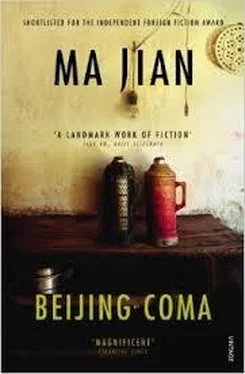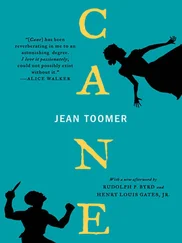‘Yes, yes, I’m Zhao Xian — during the day, I’m the government’s mouthpiece, and in the evening I’m the students’ mouthpiece!’ the TV newsreader said, chuckling to himself.
‘When his voice comes over the loudspeakers, the students will think we’re relaying a Central Television programme,’ I said. I was surprised that in real life Mr Zhao spoke in the same clipped Mandarin he used when presenting the lunchtime news.
Mou Sen composed a short bulletin about Deng Xiaoping’s resignation, and asked him to read it out. The news sent shock waves through the Square. Everyone cheered in celebration. Beijing residents let off firecrackers. Some people even set light to photographs of Deng Xiaoping. A column of students assembled outside the Great Hall of the People and prepared to march through the city, shouting, ‘Long live Zhao Ziyang and his fellow reformers!’ and ‘Let Zhao Ziyang take over as Chairman of the Central Military Commission!’ Lin Lu came over and told me to take a group of student marshals to Wangfujing Street, to make sure no one took advantage of the situation to loot shops. He didn’t want any street disturbances to break out, in case the government used them as an excuse to clamp down on us. I was impressed by his foresight.
Although your nerves are numb, you can feel the memory of love juddering in your brain like a ticking clock.
That night, I dreamed that Tian Yi was running up to me with tears in her eyes, shouting for me to escape as soldiers came charging out towards us from narrow lanes. As soon as I woke up, I searched for her. Eventually I spotted her lying under her familiar flower-patterned quilt beneath a new makeshift shelter. The ground was covered with planks of wood donated by officials in the local government who were sympathetic to our cause.
I walked through the crowd of prone bodies and sat down next to her. It was the beginning of her fifth day on hunger strike. The psychology students were camped next to the Chinese literature students, so Bai Ling and Han Dan were both nearby. Our marshals had done a good job of guarding the camp. A few medics in white coats were the only outsiders they had let through. The ambulance sirens had woken up most of the hunger strikers, including Tian Yi.
I looked at her pallid face and cracked lips, and felt her freezing hands. She didn’t just look old now, she looked as though she was dying. A cold breeze moved through the murky dawn.
‘I’m so sorry I lost you last night,’ I said. ‘I had to take some marshals to Wangfujing Street to make sure the shops weren’t looted and when I got back I couldn’t find you. What’s in that bottle you’re holding?’
‘Electrolyte in a saline solution. It smells like coconut milk. I kept wanting to retch yesterday, but there was nothing in my stomach to bring up.’
‘It’s very damp in here,’ I said, rubbing her arms through her quilt.
‘I hardly slept all night.’
‘We were right to occupy the Square,’ I said, trying to cheer her up. ‘There’s a new mood of optimism in the city. Everyone has joined our movement. Even the thieves and pickpockets have pledged to stop work in sympathy!’
‘Look how feeble I am…’ she said, struggling to raise her hands. ‘Did you go back to your mum’s flat last night?’
The sky was turning fish-belly white, and her face was almost the same colour.
‘No, I’ve only been back once since we moved into the Square. I needed to fetch some clean clothes. She asked me why I hadn’t brought you to see her for so long. She doesn’t know you’ve joined the strike.’
‘What does she make of our protests?’ Tian Yi hadn’t liked my mother until I took her to see her perform in The Marriage of Figaro. She was moved by her singing.
‘She said we’re right to oppose corruption, but she thinks the hunger strike is a step too far and will cause China to lose face abroad. She went on about my father again and warned me not to repeat his mistake. She said: “Don’t draw attention to yourself. Remember, the bird that leaves the flock is always the first to be shot.” But all the young singers in her opera company have come to the Square. It’s the trendy thing to do.’
‘There’s not enough oxygen getting to my brain,’ Tian Yi murmured. ‘If I carry on any longer, I’ll become a…’
‘Have some of this milk,’ I said, pulling out a plastic sachet I’d brought for her. ‘The government is bound to agree to our demands soon. When the strike is over, I’ll take you to the Muslim restaurant outside our campus gates and buy you a big plate of fried noodles.’
She tilted forwards and rested her frail arms on my lap. ‘I hate the taste of milk…’ she croaked. ‘It reminds me of my childhood… My mother was six months pregnant with me when my father was condemned as a counter-revolutionary. The shock was too much for her. I was born prematurely and weighed only three kilos. She wouldn’t breastfeed me. She was afraid that feeding the child of a counter-revolutionary would offend the Party. A few days later, she thrust me into my father’s arms and ran away. My father bought two bottles of cow’s milk and slowly brought me back to life.’
‘If you don’t want milk, I can get you something else.’
‘My brain is jumbled… Trivial details keep returning to me. Just now, I remembered the red-and-white pyjamas I wore as a child. When you’re alive you have to keep thinking about things. It’s so tiring. I don’t know if I can carry on.’ Face downwards on my lap, she was now talking into the folds of my trousers.
‘You won’t die. When the body is starved, the cells work twice as hard. Your life force is strong.’
She grabbed my belt and tried to sit up. ‘Why am I on hunger strike?’ Her hands, so cold a few moments before, were now hot and trembling.
‘You joined the Beijing University Hunger Strike Petition Group,’ I said.
‘I mean: who am I doing this for? Those government leaders? Do we really have to starve ourselves to death in order to get them to speak to us?’ She closed her eyes again.
‘There’s no need to sacrifice yourself. It’s not worth it. When the movement is over, we can go abroad and live our lives in freedom.’ I wanted to put my arms around her but was afraid of hurting her frail body.
She looked up at me. The whites of her eyes were yellow. Her pupils reflected the dark outline of Tiananmen Gate.
I tried to open the sachet of milk. The plastic split and milk poured onto the quilt. It smelt sour.
‘I suppose I’m doing this for my father,’ she said. ‘Ever since his father was executed by the Communists, he’s lived in fear. When I was nine, he made me read the Romance of the Three Kingdoms because he wanted me to learn how sly and deceitful men can be… But he didn’t realise the book would awaken in me a love for literature…’
The day before, Tian Yi had written a poem in classical Chinese. I’d given it to Mou Sen, hoping he would publish it in Hunger Strike Express , a newspaper he’d launched with some fellow classmates.
‘In my childhood, I just saw my father as an old peasant who visited us every year,’ I said. ‘My mother brought up my brother and me single-handed.’
‘I want to show my dad that you mustn’t live your whole life in a state of docility and submission,’ she continued. ‘Confucius said that the three armies can be robbed of their commander, but the common man can’t be robbed of his will. I don’t want my father to spend the rest of his days in fear.’
‘We’re not asking for much,’ I said. ‘Personally, I’d be happy if they just granted us the right to have relationships while we’re at university… Lie down now, Tian Yi, and try to get some sleep. I’ll watch over you.’
Читать дальше












